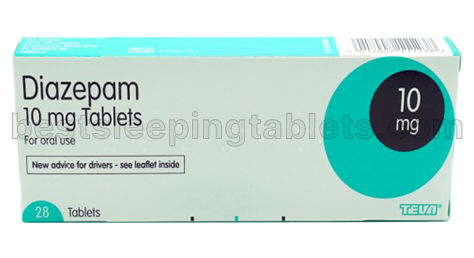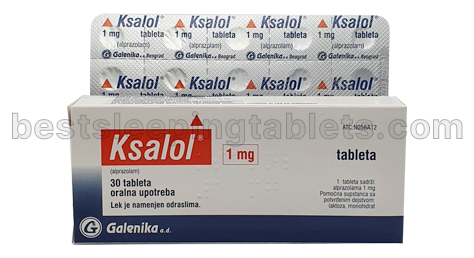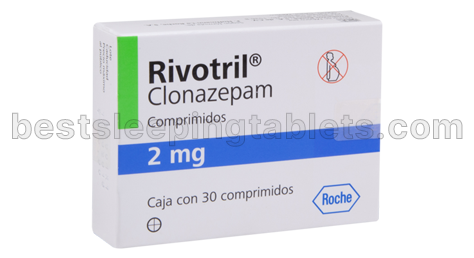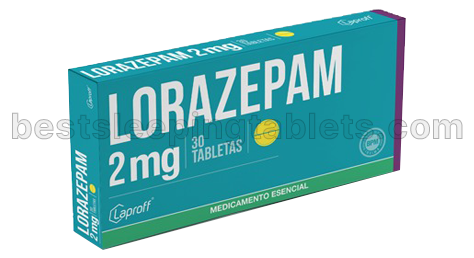Main Types of Anxiety
Post-traumatic stress disorder (PTSD) - as specified is caused by very stressful, frightening events. It can happen after someone has experienced a traumatic event like a war, an assault, an accident, or disaster. Symptoms can include difficulty relaxing, distressing dreams or flashback memory of the event. PTSD is usually diagnosed when a person has symptoms for at least a month.
Obsessive compulsive disorder (OCD) - is when a person has unwanted and uncountable thoughts and fears. Despite knowing that there is no reason for the anxiety, a person with OCD will try to control their fear by repeating certain actions and rituals.
Social Anxiety - is an overwhelming fear of social circumstances. It is an intense fear of being, embarrassed, humiliated, or criticised in everyday situations such as, speaking or eating in public.
Phobias - are extreme fears of specific situations such as traveling on planes and crowded spaces, or particular things like insects and other animals.
General anxiety disorder (GAD) - is when people feel worried and anxious, not only in normal stressful situations, but most of the time. People who suffer from GAD can become very anxious about everyday events such as being late for a meeting.
Panic Attacks - are sudden and overwhelming periods of anxiety with symptoms such; breathing difficulties, heart palpitations, and excessive perspiration. Sudden bouts of panic attacks can come on quickly and for no obvious reason.
One of the most difficult aspects for people dealing with an anxiety disorder is feeling that no-one else can understand how bad it feels. However, a 2018 survey conducted by the Mental Health Foundation found that as many as 74% adults had struggled to cope with overwhelming stress and anxiety in that particular year.
What Are Anxiety Symptoms?
With so many adults struggling with some form of anxiety, it is clear that these disorders are far more common than many people realise. Although, there are some common mental and physical symptoms, not everyone who has an anxiety disorder will experience it in the same way or have the same symptoms.
Mental symptoms of anxiety may include:
- racing thoughts,
- uncontrollable over-thinking,
- difficulties concentrating,
- feelings of dread, panic or danger,
- irritability,
- heightened wariness,
- sleep disorder,
- changes in appetite,
- a desire to break away from the situation
- mental disconnection as if watching the situation without being part of it
Physical symptoms of anxiety can include:
- sweating,
- heavy and fast breathing,
- hot flushes or blushing,
- dry mouth,
- shaking,
- hair loss,
- fast heartbeat,
- extreme tiredness or lack of energy
- dizziness and fainting, and
- stomach aches and sickness.
If you have been experiencing any of these symptoms regularly and for several weeks, it is recommended that you consult your doctor as anxiety can lead to depression if left untreated.
Take an Online Anxiety Test
If you suspect that you are struggling with anxiety, but are unsure if you have an actual anxiety disorder, there are several actions you can take before making an appointment with your doctor or starting a course of anti-anxiety medication.
- It is important to try to speak to someone about your anxiety. It could be a trusted friend, a member of your family or a specialist helpline, but talking to someone is always better than suffering in silence.
- Some form of physical activity such walking, running, and swimming are great for clearing the mind of problems, and can help to relax.
- Improve sleep hygiene to improve the quality and length of sleep
- Large projects or tasks are less stressful when broken into smaller more manageable pieces
- Relaxation and mindfulness apps are becoming popular ways to slow down thought processes and reduce stress
However, if you looking for a more immediate assessment to help decide if anxiety treatment is needed, there are some simple online tests that can be completed in minutes that will guide you towards dealing with your problem.
Best Anti-Anxiety Medication
Just as there are many kinds of anxiety disorders, there are also many different types of anti-anxiety medications that are used to treat them. By far the most commonly prescribed anxiety treatments belong to the benzodiazepine family of medicines.
Benzodiazepines such as alprazolam (Xanax) and lorazepam (Ativan) have been used to treat anxiety and panic attacks since the 1960's. Although these anxiety treatments are usually prescribed for short-term use (2-4 weeks), they have been proven to be effective at helping millions of anxiety sufferers around the world.
In recent years, newer options became available that are sometimes recommended as a long-term anxiety treatments like selective serotonin reuptake inhibitors (SSRI) antidepressants such as fluoxetine (Prozac).
These drugs are not cures, and while they can provide temporary relief, they also come with side effects and safety concerns. A recent analysis reported in JAMA Psychiatry found that the effectiveness of SSRIs in treating anxiety has been overestimated, and in some cases is no better than a placebo.
How Anti-Anxiety Medications Work
Benzodiazepine anxiety treatments are also known as tranquillisers, and are the most widely prescribed type of medication for anxiety. Drugs such as Xanax (alprazolam), Klonopin (clonazepam), Valium (diazepam), and Ativan (lorazepam) work quickly, and usually bring relief within 30 minutes to an hour.
That makes these anti-anxiety medications very effective when taken during a panic attack or another overwhelming bout of anxiety. However, they can be physically addictive and are generally not prescribed for long-term treatment.
Benzodiazepine anxiety treatments work by boosting the effect of the neurotransmitter gamma-aminobutyric acid (GABA). This results in a sedative, hypnotic (sleep inducing) effect, and slows down the central nervous system. They also have muscle relaxing qualities, so the overall effect helps patients relax both physically and mentally.
As with all pharmaceuticals, anxiety treatments can sometimes be unwanted side effects. The higher the dose, the more intense these side effects can be.
Common side effects of benzodiazepines include:
- Drowsiness
- Dizziness
- Poor balance or coordination
- Slurred speech
- Trouble concentrating
- Memory problems
- Confusion
- Stomach upset
- Headache
- Blurred vision
Some patients do report feeling sleepy, foggy, and uncoordinated even on low doses. This can cause problems with work, or everyday activities such as driving and using machinery, and this medication "hangover" can last into the next day.
There are also some precautions in which the use of benzodiazepine anxiety treatments should be carefully considered or even avoided such as:
- Drug allergies.
- Pre-existing medical conditions such as lung disease and sleep apnoea (temporary stopping of breathing during sleep).
- Whether you are taking any other medicines, supplements or traditional medicines. Some of them may affect how this medicines works.
- Benzodiazepines are generally not recommended for women are expectant, plan to get pregnant or breastfeeding
- Mixing alcohol with any sedative medication as it increases the risk of dangerous side effects
- Grapefruit and grapefruit juice: Grapefruit and grapefruit juice may interact with certain benzodiazepines such as midazolam, triazolam, and alprazolam, and may lead to potentially dangerous side effects.
- Patients are not recommended to suddenly stop taking benzodiazepines, as this can increase the risk of withdrawal symptoms, including rebound anxiety.
Although the side effects are mild and are not experienced by all patients, we do recommend that patients follow the correct dosage instructions. For information about individual anti-anxiety medications, select the name from the product list for further details.
Primary Advantages of Anxiety Medication Online
In controlled studies, anxiety medication has demonstrated efficacy in the treatment of generalised anxiety disorder, social phobia and panic disorder, with or without agoraphobia. In general, benzodiazepines are well tolerated and include the following advantages:
- A reduction in the psychogenic symptoms of anxiety, like difficulty concentrating and feelings of irritability.
- A reduction in the physical symptoms of anxiety, like restlessness, muscle tension, panic attacks and sleeping difficulties.
- Fast-acting effects and almost immediate relief from anxiety which can give a person the opportunity to complete essential tasks, such as travelling in a plane.
Positive Outcomes of Treating Anxiety
Sometimes, the use of anxiety medication online is recommended, particularly for treating excessive anxiety that interferes with daily routines and activities. When used as advised, benzodiazepines have the ability to soothe severe levels of tension, nervousness and anxiety.
Benzodiazepines provide an overall calming feeling which is often beneficial for patients with anxiety disorders that keep them feeling overly nervous. When taken correctly, these medications can improve a person's overall well-being and help them function more normally or productively in their daily lives.
Clinical Research on Benzodiazepines for Anxiety
A took place to assess the effect of alprazolam and diazepam in the treatment of anxiety and panic attacks in panic disorder. In total, 48 patients who were experiencing panic attacks were arbitrarily assigned to receive diazepam, alprazolam or placebo.
The researchers used the Hamilton Rating Scale for Anxiety; and a panic attack frequency rating scale to determine results. They found that, in comparison to inactive placebo tablets, both alprazolam and diazepam were effective at reducing the severity of generalised anxiety disorder.
The researchers also found that both medications reduced the occurrence of panic attacks among patients in the study. Hence, this study confirmed the efficacy of these benzodiazepines in regards to the treatment of general anxiety and panic disorder.
In another similar , researchers compared the effects of alprazolam with diazepam for the treatment of mild to moderate generalised anxiety. They found that the ideal dose for treating patients with alprazolam, without causing excessive sedation, was 2mg per day. For diazepam, the ideal dose was 15.8mg.
Using Anxiety Medication Online for Insomnia
Anxiety is often associated with insomnia, as feelings of worry and fear can make it difficult to fall asleep and achieve a full night's rest. Along with healthy sleep hygiene practices like maintaining a consistent sleep schedule, you can conveniently purchase anxiety medication online to effectively treat insomnia.
Benzodiazepines are effective for sleeping difficulties that are severe and causing distress. These medications reduce the time taken to initiate sleep as well as periods of wakefulness during the night.
Buy Anti-Anxiety Medication
People who have been prescribed or are already using anti-anxiety medications have two options for buying anxiety treatments. The traditional option is to find a nearby chemist shop, speak to a sales assistant or pharmacist and buy the medication over the counter (OTC).
The second option is one that many people are finding much more convenient and easier to do.
Buying medicine online is rapidly becoming the preferred choice for people needing medication for all kinds of ailments. While many people still see the traditional chemist as an opportunity leave the house and maybe pick up some other items in the process, many more are either less able to hit the high street or feel less inclined to share information about personal issues.
Another advantage to buying online is the potential cost of the anti-anxiety medications. Despite the friendly faces and helpful staff, many patients are left with an unwelcome surprise after realising how expensive some medications can be, particularly if it is an expensive branded medicine.
Along with anti-anxiety medication, we also stock a wide range of sleeping pills, and painkillers.
When you buy anti-anxiety medication at our online pharmacy, you get access to the widest range of treatments at the lowest prices possible.
Last Reviewed: 10th July 2024
Next Review Due: August 2025




